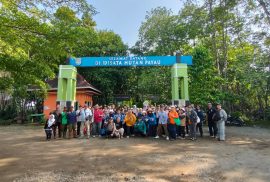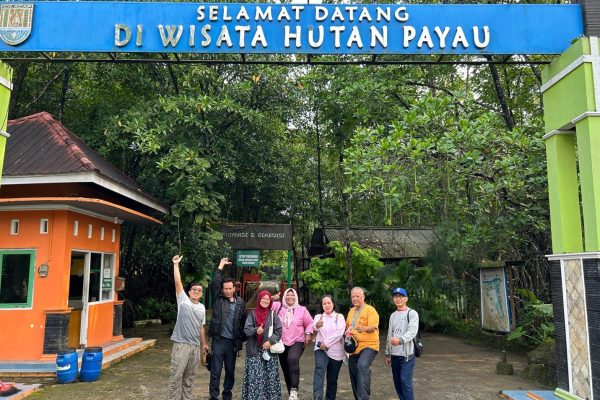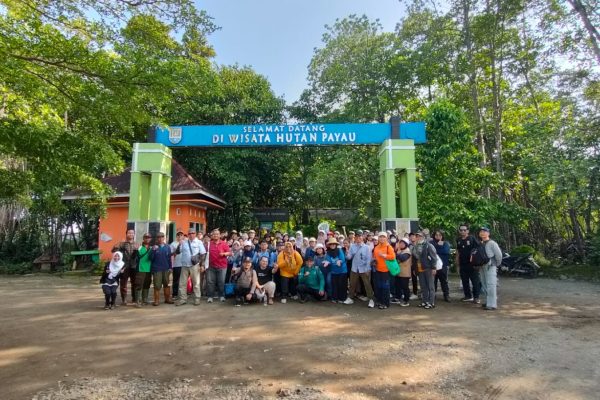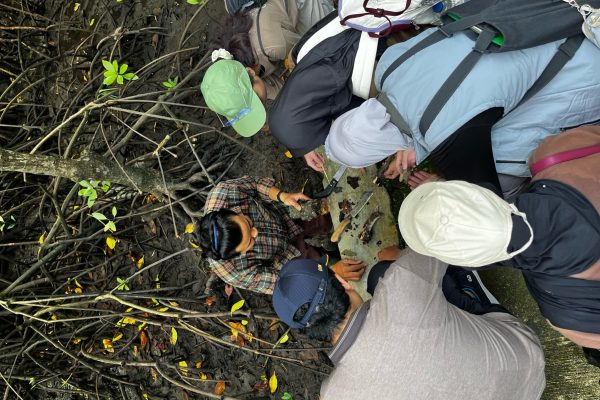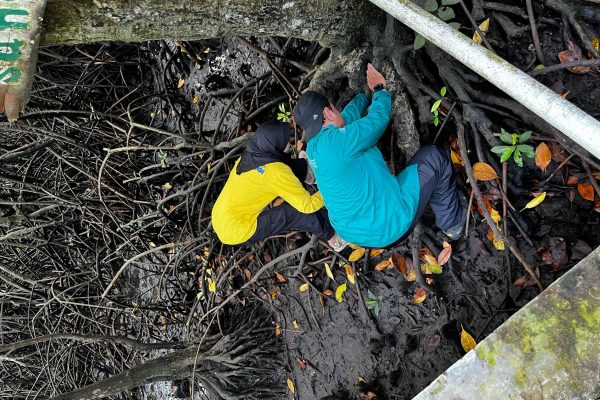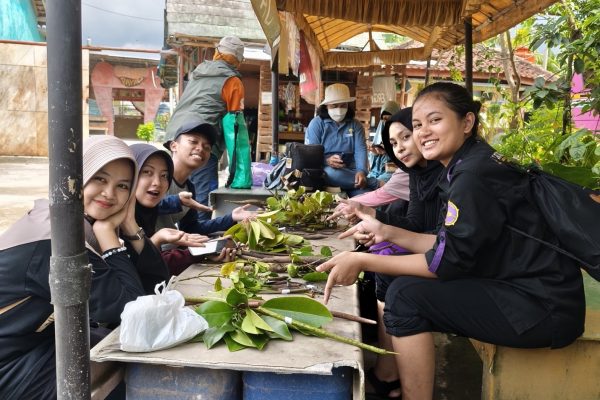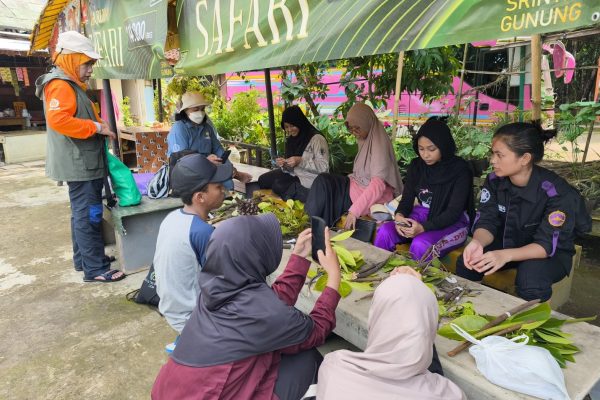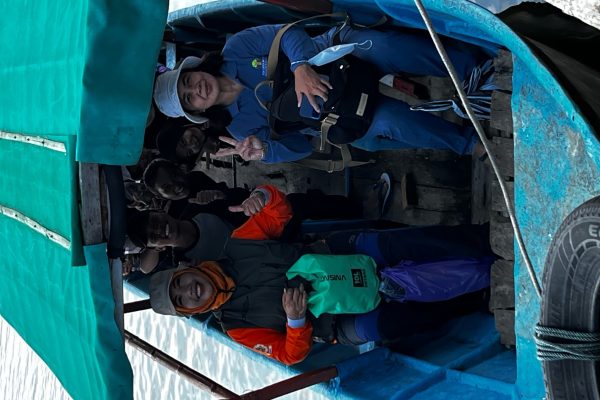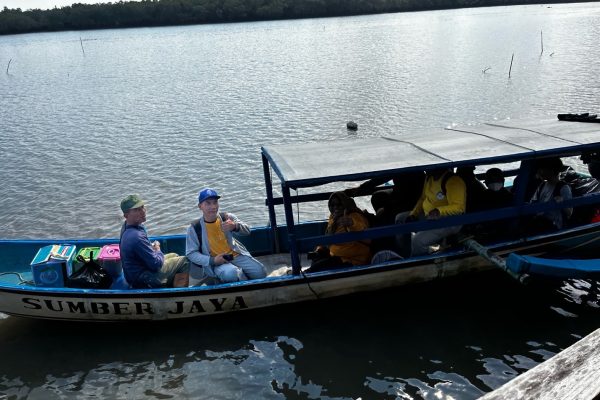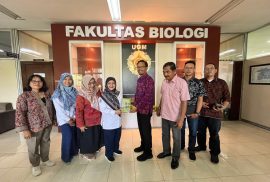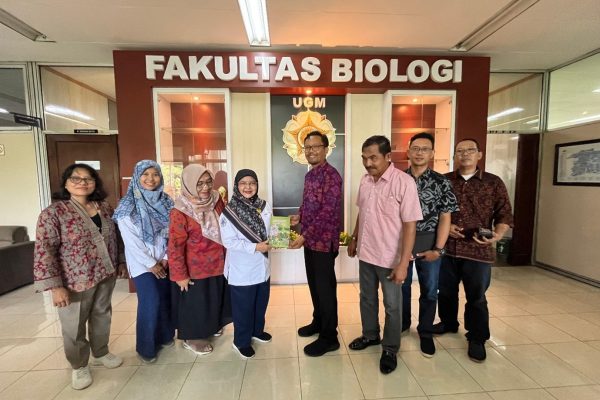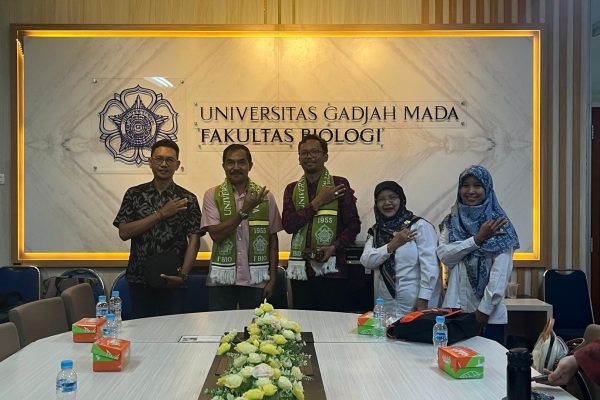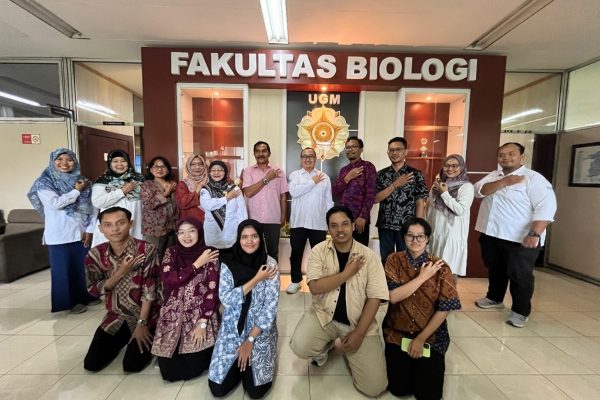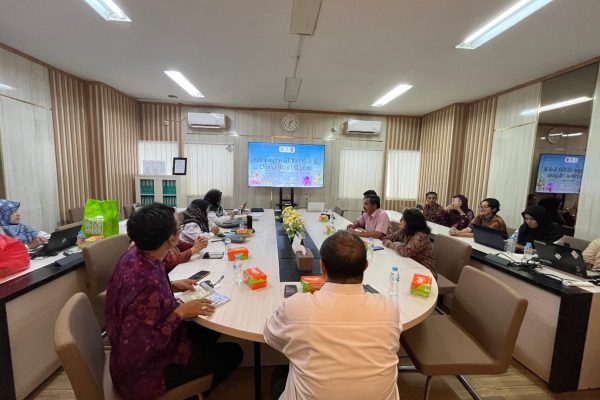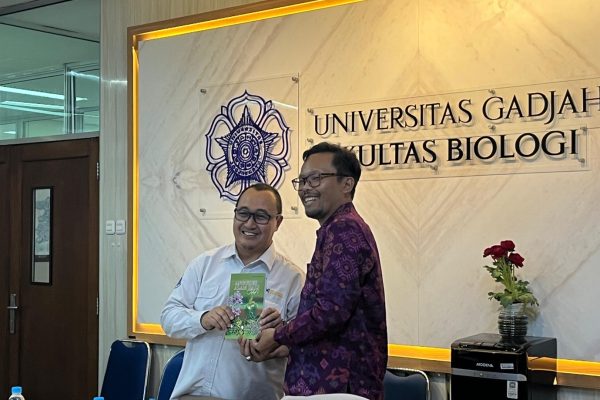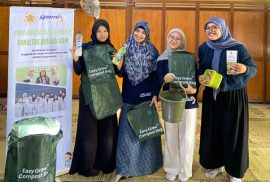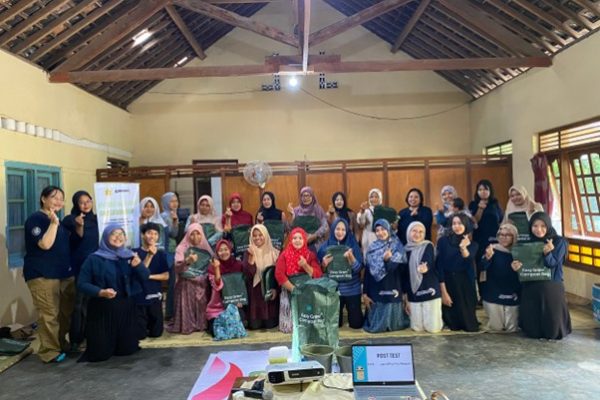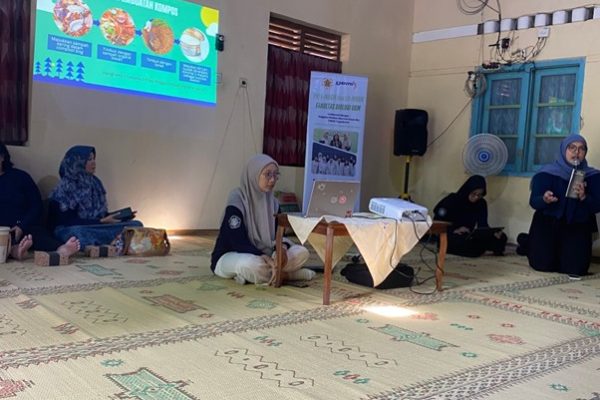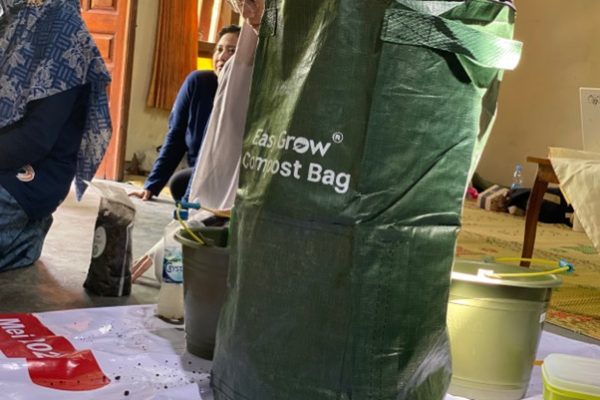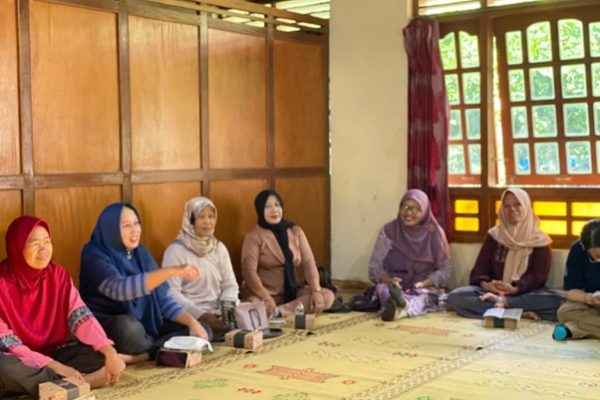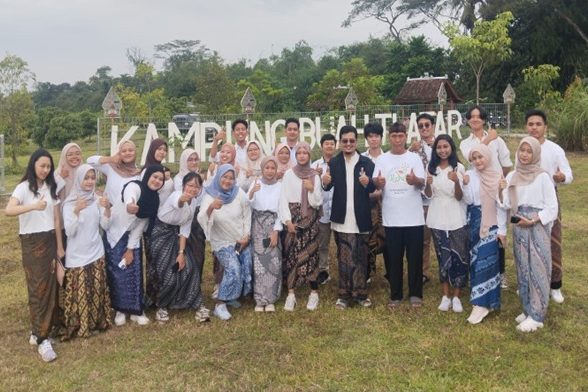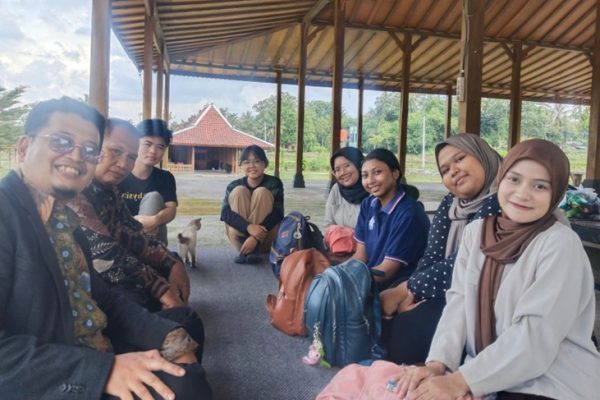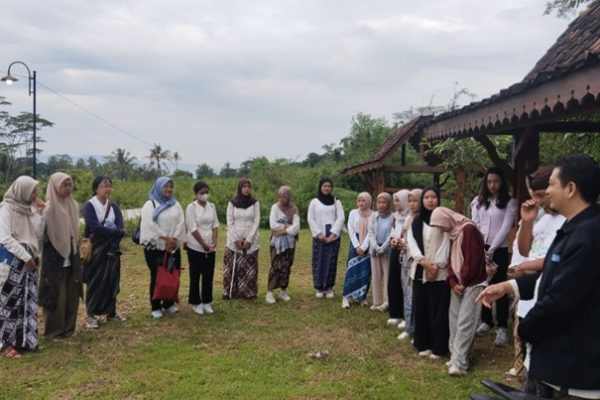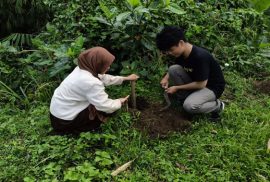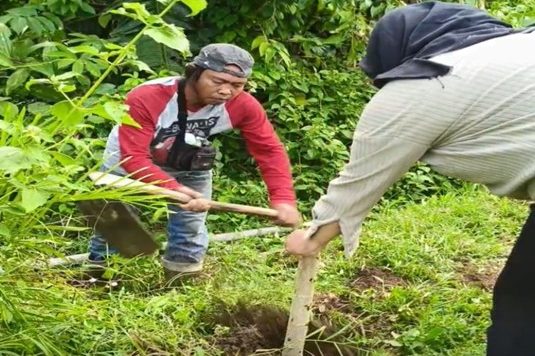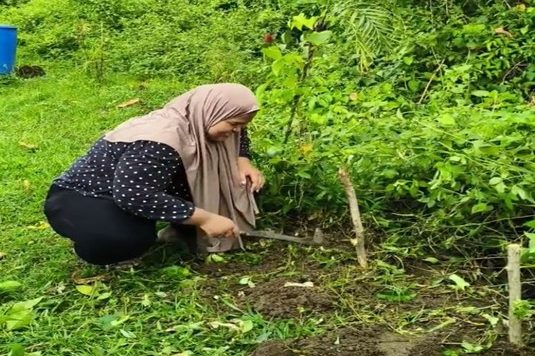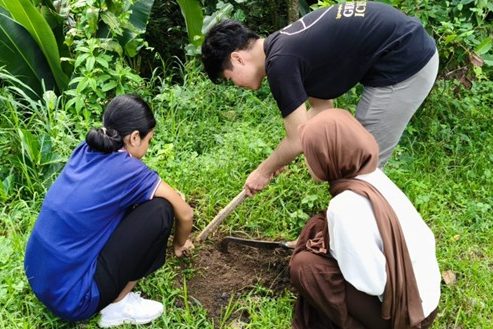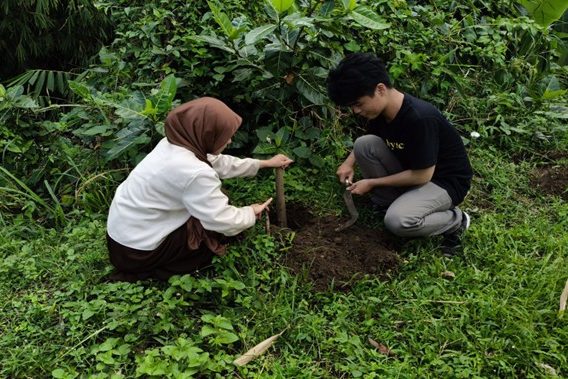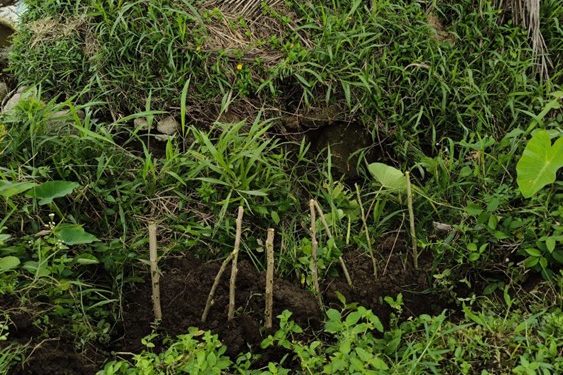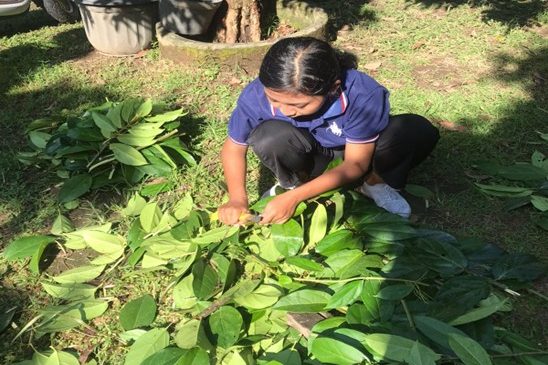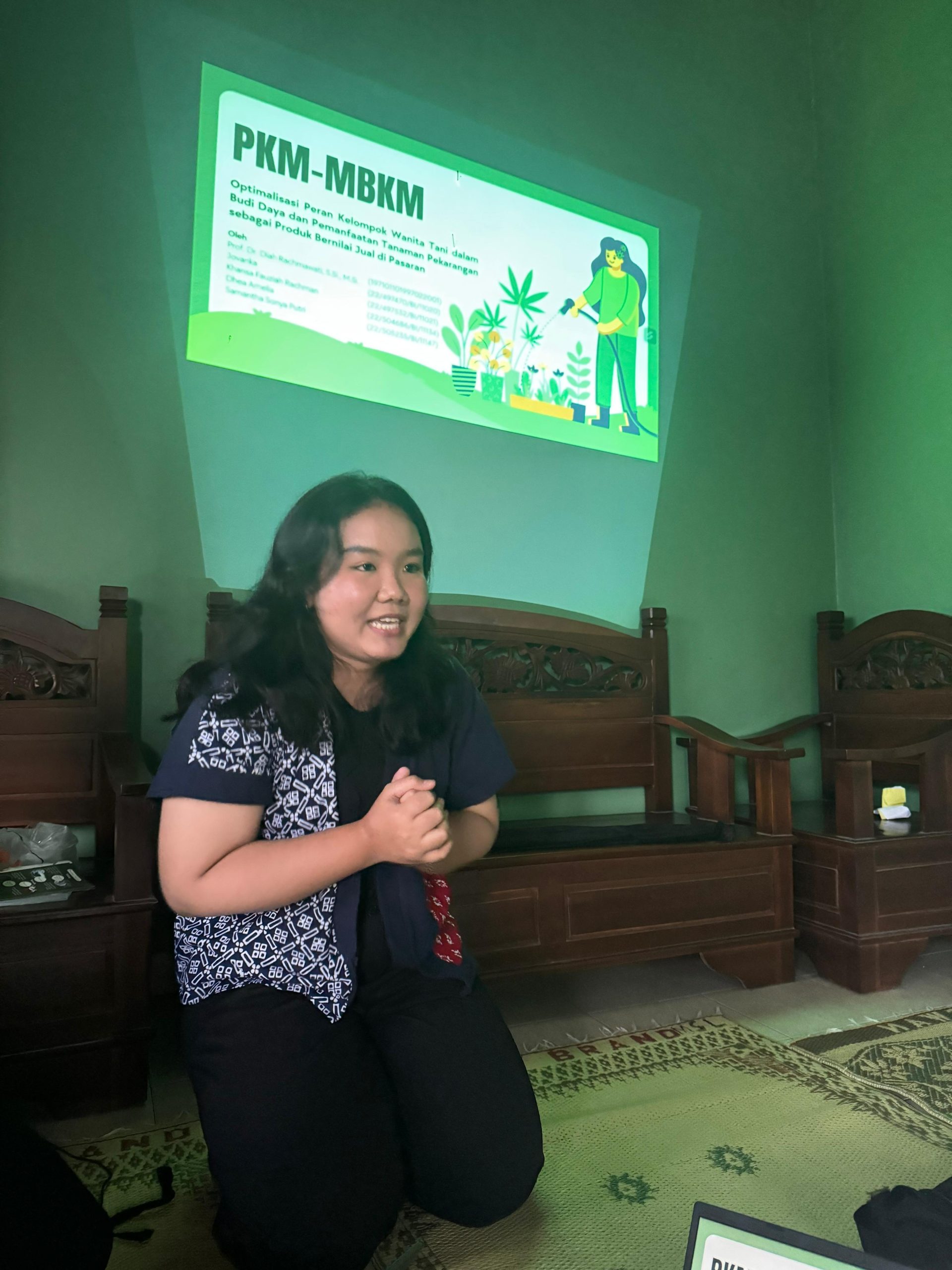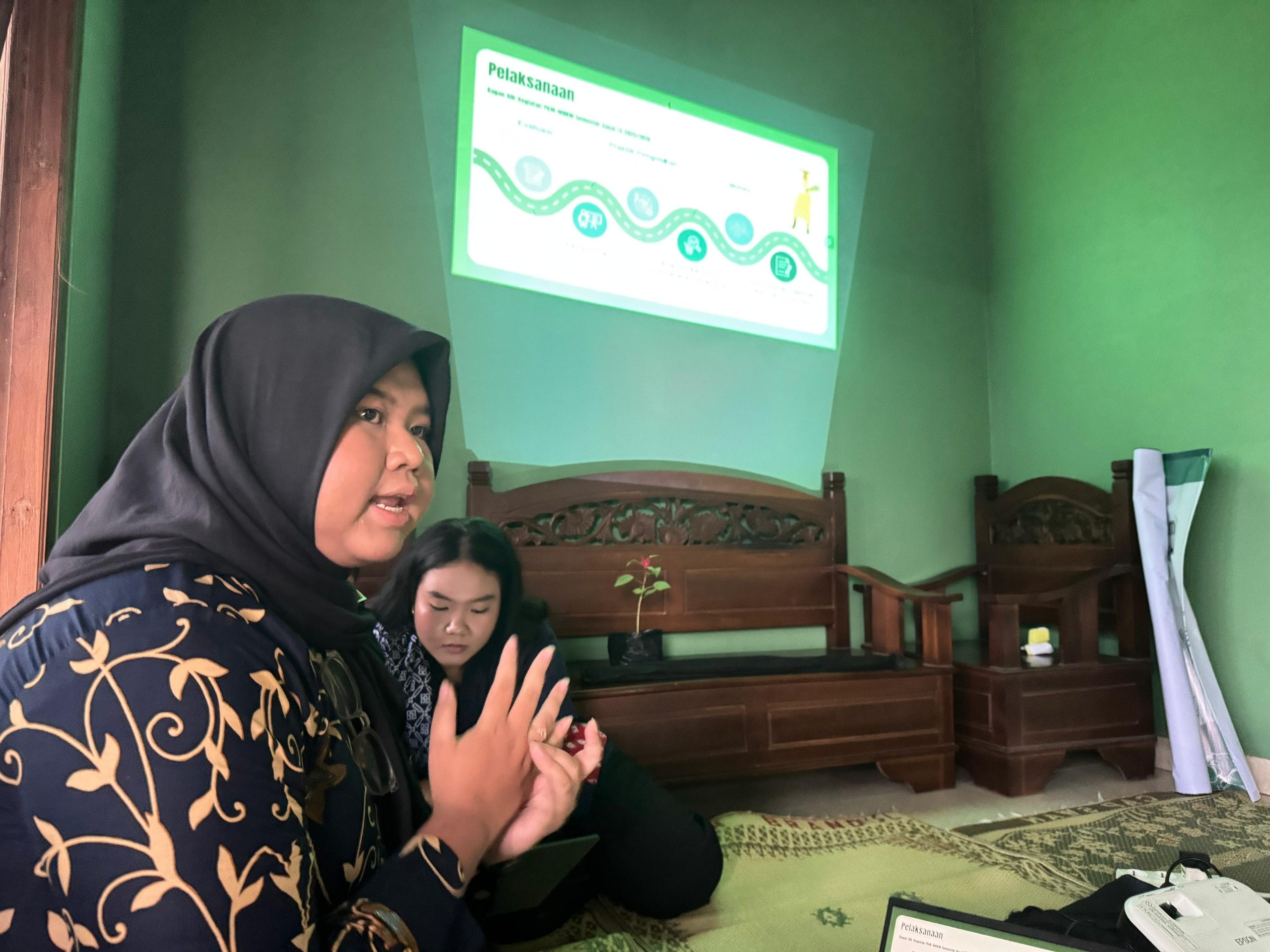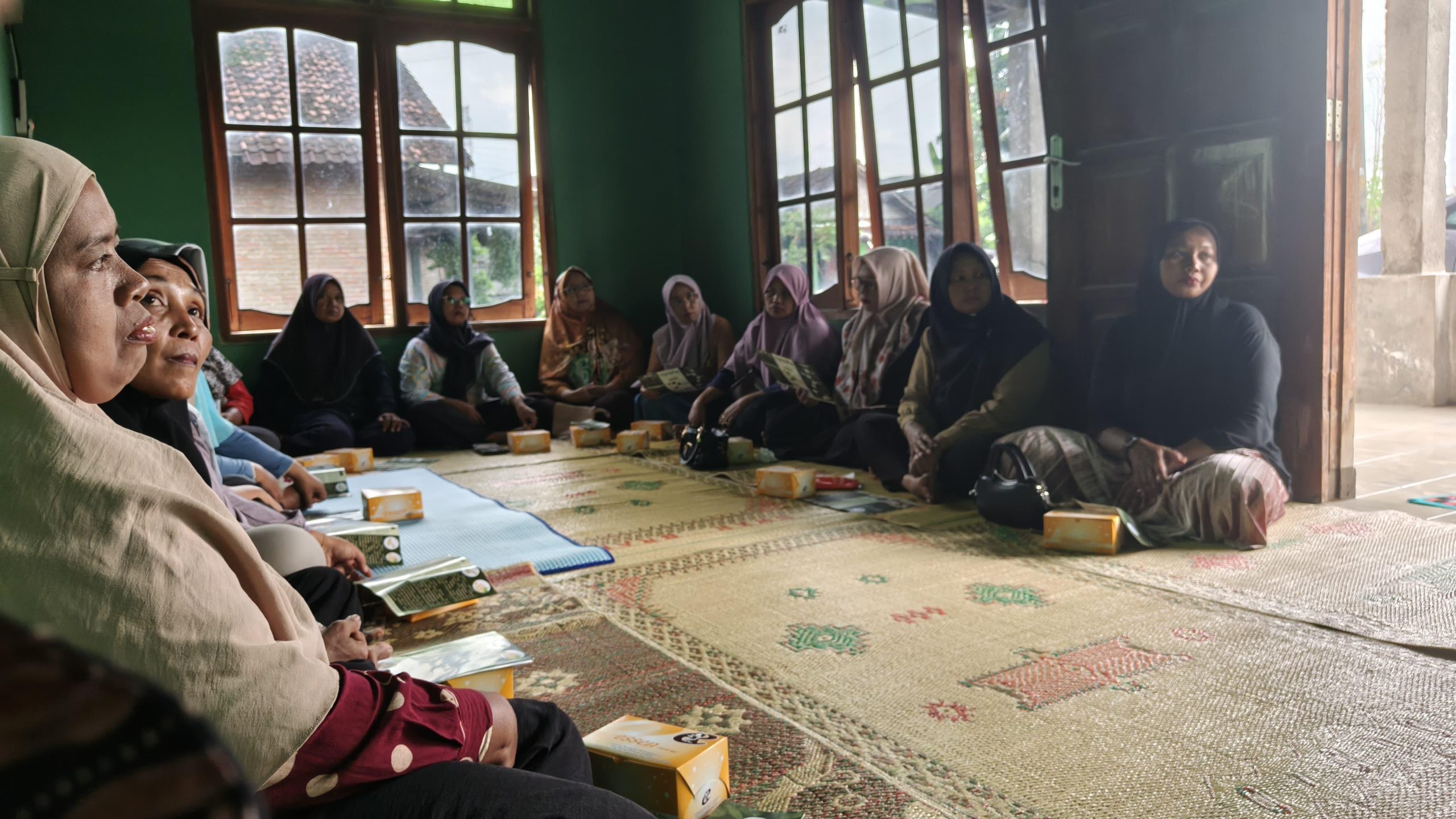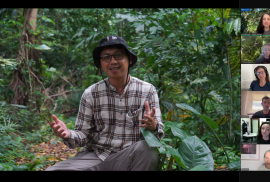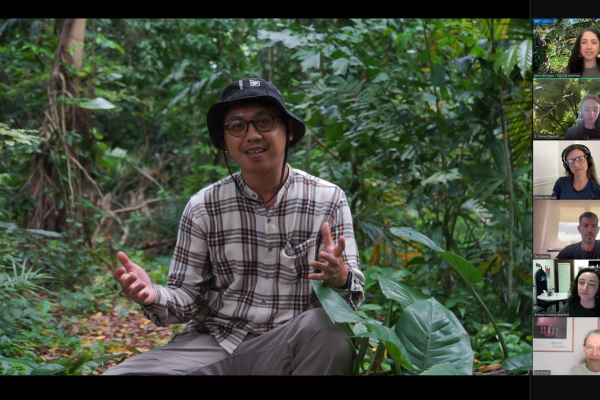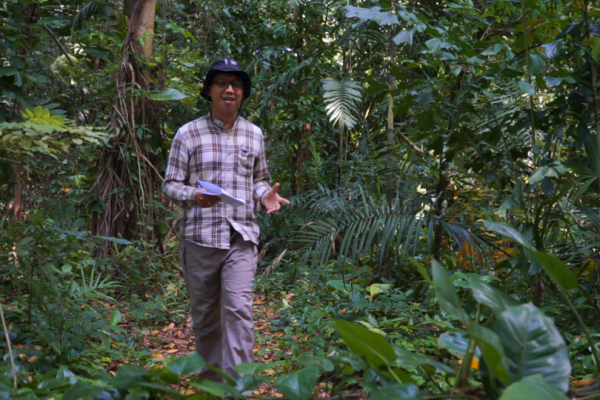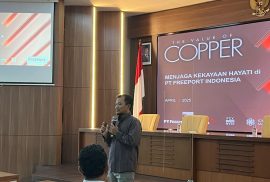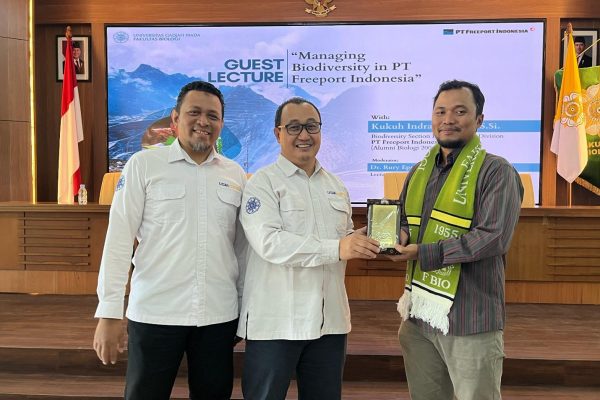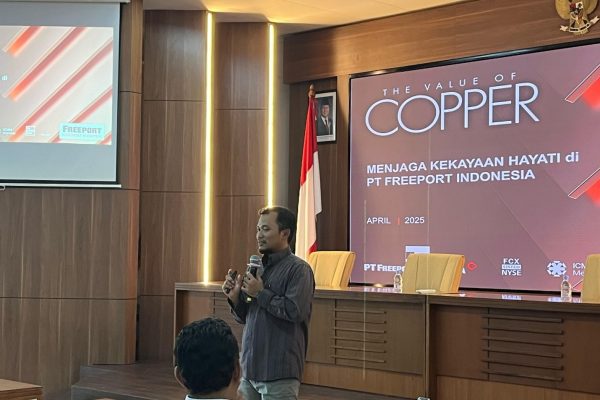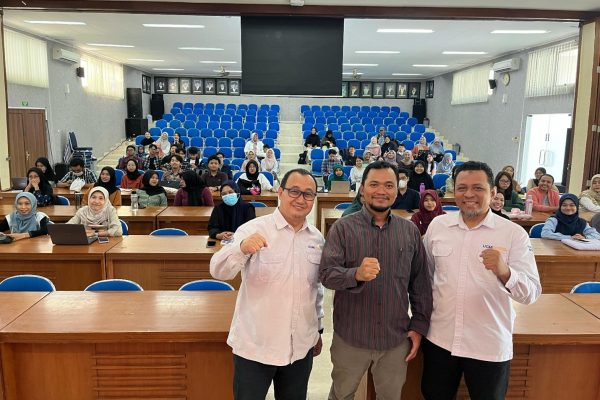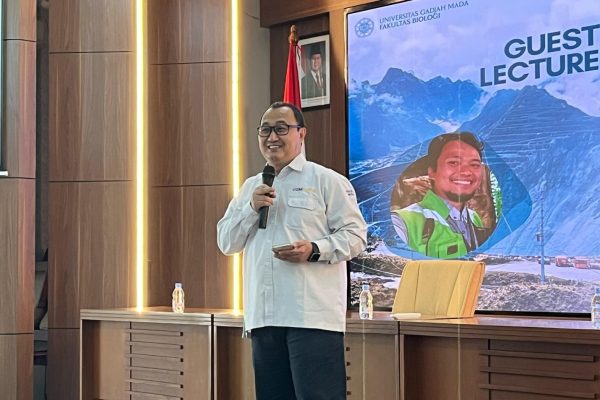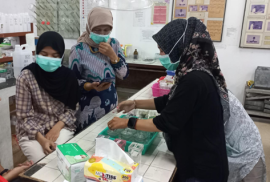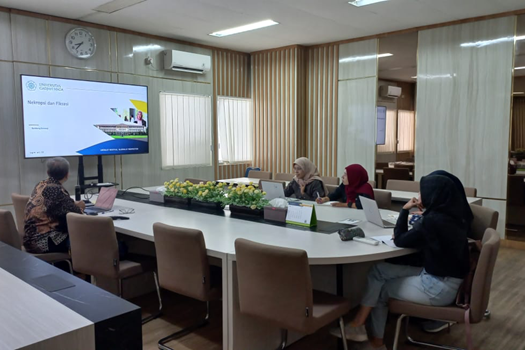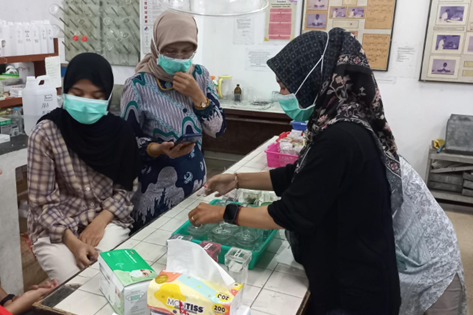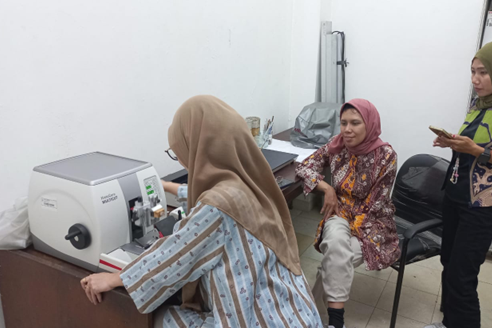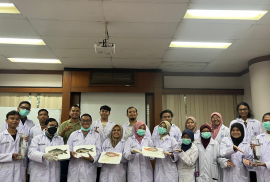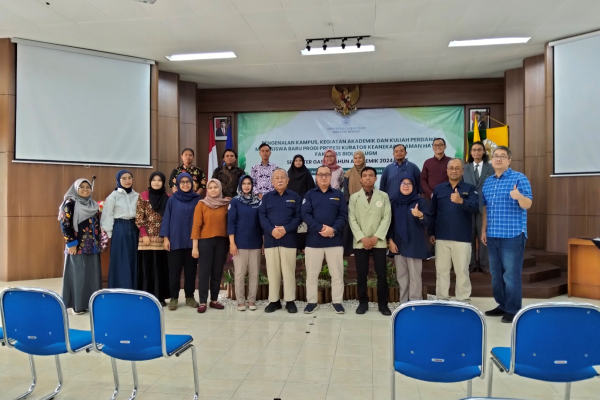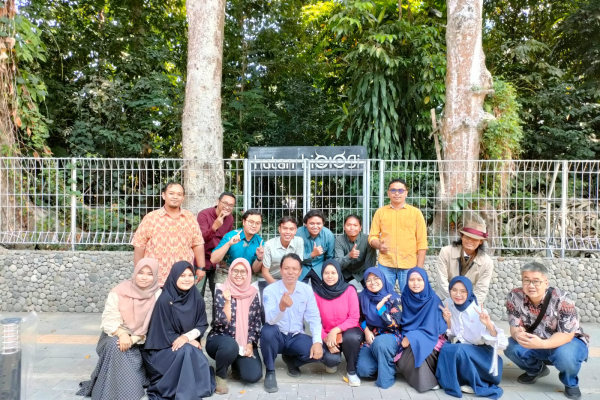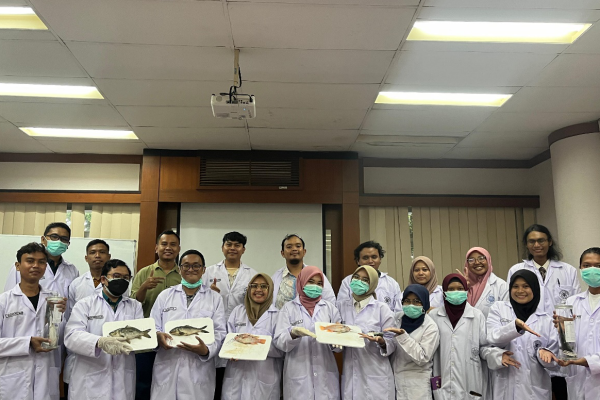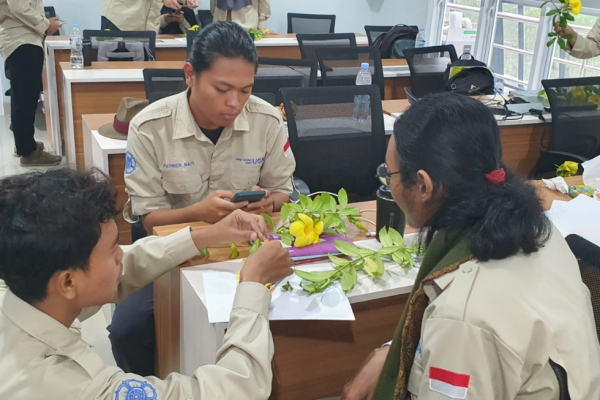Arsip:
SDG 15 : Advance Life On Land
Faculty of Biology Universitas Gadjah Mada (UGM) held the 2025 Scheduled Internship activity which took place on 20–22 June 2025 in the Cilacap Payau Forest area, Central Java. This activity was attended by 44 students and 17 lecturers with the main focus on introducing mangrove ecosystems, implementing collaborative research, and developing student skills in the field.
The Cilacap Payau Forest area was chosen because it is a unique transition zone between terrestrial and aquatic ecosystems with an area of around 10 hectares. This mangrove forest plays a crucial role as an ecological buffer zone for the Segara Anakan area and is an ecotourism destination with collaborative management between Perum Perhutani KPH Banyumas Barat and the local Forestry and Plantation Service.
During the three-day activity, students explored the diversity of mangrove flora and fauna, collected vegetation data, surveyed wild epiphytic orchids, studied plant morphological adaptation, and analyzed the diversity of fish, crustaceans, and insects. Other activities include making herbarium, insect collection, sediment and litter sampling, and observation of lichen and honey bees. Students are also trained in the use of practical methods such as fish morphometric analysis and anatomical adaptation of mangrove leaves. In supporting field activities, the committee also provides various facilities, including a basecamp for briefings and rest, three boats that can be used for the sampling process up to the young sea, and local guides who assist in collecting field data.
“This practical work is very important as a means of real learning for students in understanding the complexity of the mangrove ecosystem and developing applicable field research skills. We also hope that this activity can encourage increased awareness of the importance of brackish water ecosystem conservation for environmental balance and the lives of the surrounding community,” said Sukirno, S.Si., M.Sc., Ph.D., one of the supervising lecturers.
In addition to supporting the process of education and academic research, this activity is also in line with the objectives of the Sustainable Development Goals (SDGs), especially in terms of aquatic ecosystem conservation (SDG 14: Life Below Water), terrestrial ecosystem preservation (SDG 15: Life on Land), and strengthening partnerships to achieve global goals (SDG 17: Partnerships for the Goals). Through active collaboration between UGM academics and local communities, this activity is expected to be able to provide a positive contribution to environmental sustainability and the socio-economic welfare of the local community. With the ongoing activity, the Faculty of Biology UGM is committed to continuing to be at the forefront in encouraging integrative education, useful research, and sustainable community service.
Yogyakarta, June 2, 2025 — The Faculty of Biology, Universitas Gadjah Mada (UGM), through its Biotechnology Laboratory, hosted a collaborative meeting with the Faculty of Agriculture, Udayana University, and the Regional Research and Innovation Agency (BRIDA) of Bali Province on Monday, June 2, 2025. The meeting took place at the KPTU Meeting Room of the Faculty of Biology UGM.
This meeting aimed to discuss a joint research initiative focused on utilizing biotechnology to develop a new variety of Bali-native orchids, known as Dwarf Forma Bali. The collaboration is expected to strengthen both conservation efforts and innovation in the development of regional ornamental plants through modern biotechnological approaches.
The Udayana University delegation was led by Dr. Gusti Ngurah Alit Susanta Wirya, S.P., M.Agr., Dean of the Faculty of Agriculture, accompanied by researchers Dr. Putu Sudiarta, Prof. Dr. Ir. Rindang Dwiyani, and Dr. Ida Ayu Putri Darmawati. From BRIDA Bali, Ir. I Nyoman Suarta, M.Si., Head of Regional Development Priority Division, attended along with several BRIDA staff members.
Representing the Faculty of Biology UGM were Dr. Eko Agus Suyono, S.Si., M.Sc., Vice Dean for Research, Community Service, Collaboration, and Alumni; Wahyu Aristyaning Putri, S.Si., M.Sc., Ph.D., Head of the Biotechnology Laboratory; Prof. Dr. Endang Semiarti, M.S., M.Sc.; Dr. Eng. Thoriq Teja Samudra, S.Si., M.Sc.; as well as undergraduate and graduate students under the supervision of Prof. Endang, who have long been engaged in orchid research as one of Indonesia’s leading tropical plant resources.
During the discussion session, the UGM Biotechnology Laboratory team presented their recent research progress, including:
- Development of miniature orchid varieties using the CRISPR/Cas9 Genome Editing system
- Identification and analysis of model plants to support miniature orchid development
- Characterization of the ERECTA gene structure, which plays a role in orchid morphology regulation
This meeting marked an important step in strengthening research synergy between universities and regional research institutions in supporting the development of local genetic resources through innovative scientific approaches. It is hoped that the collaboration will not only result in superior orchid varieties but also enhance the role of scientific research in regional development and biodiversity conservation in Indonesia.
The Community Service Team – Independent Campus Learning Program (PKM-MBKM) of Faculty of Biology UGM 2025 led by three lecturers, namely Novita Yustinadiar, M.Si, Woro Anindito Sri Tunjung, Ph.D., and Wahyu Aristyaning Putri, Ph.D., together with 11 students have carried out the third activity in a series of PkM-MBKM programs in partnership with the GEMI Sharia Cooperative (Gerakan Ekonomi Kaum Ibu). The third activity was carried out in Panggungharjo Village, Sewon District, Bantul Regency, Yogyakarta Special Region. This team involved three students, namely Anisah Qurrotu’Ainii (Chairperson), Hafifah Nur Ainiyah (Secretary), Alma Puska Falasyifa (Treasurer) and the help of 8 other students with a theme entitled “Application of Zero Waste System in an Effort to Realize a Clean, Healthy and Green Environment in Members of the Economic Movement of the Mothers (GEMI) Yogyakarta”. This PkM-MBKM program supports the achievement of Sustainable Development Goals (SDGs), especially SDGS 3 (Good health and well-being), 12 (Responsible consumption and production), 15 (Maintaining Land Ecosystems). This program is planned to take place for two semesters with a total of 6x direct counseling to GEMI partners.
Socialization and practice activities were carried out on Saturday, May 24, 2025, at 09.00–12.00 WIB at the home of one of the GEMI members. This activity was attended by GEMI members and waste bank members. Before the practice, there was a pre-test to map the participants’ understanding before participating in the material presentation, followed by a material presentation related to organic waste and exposure related to compost fertilizer with the Berkeley method in a compost bag, then continued with demonstrative practices by a team of students and accompanying lecturers related to making compost bags.
The event continued with a question and answer session and quizzes related to the material that had been delivered. The women participants seemed very enthusiastic about asking and also answering the questions asked. There was a two-way discussion between the organizers and the participants who participated in the activity. As a form of appreciation, active participants were given gifts in the form of tumblers and bags as a form of circular economy and zero waste to reduce the use of plastic bags and bottles. The event was then closed and continued with a joint documentation session.
On April 13, 2025, students of the Independent Learning Independent Campus (MBKM) Village Development program again demonstrated real contributions in developing the potential of tourism villages through the design of sustainable agriculture-based programs and empowerment of local resources in the tourist destination village of Kabut Kebonalas Manisrenggo Klaten. This discussion activity was carried out by Nurhayati, together with her team, namely Tiara Syifa Wididevani, Putri Ramadhanti, and Mirmastu Lintu Nirmala Wasti, under the guidance of Mr. Sukirno, S.Si., M.Sc., Ph.D. This discussion was carried out directly with Mr. Drs. Suwadi as the the secretary of Kebonalas and also as the Head of POKDARWIS Kabut Kebonalas, as a form of initial collaboration in the implementation of the integrative program between MBKM and KKN PPM UGM for the period June 20–August 2025. This activity also involved Mr. Yousuf Sulaiman, S.IP as a practitioner. The main focus of the program is the management and optimization of the Tlatar Fruit Garden through an educational approach, sustainable agriculture, and innovation based on local biodiversity.
The scope of the program includes greenhouse management as a center for education and production of horticultural plants, especially eggplant and melon plants. In addition, this activity will also provide education related to fertilization techniques and care for starfruit and longan plants. The MBKM program also encourages the use of local plants as alternative food sources, such as cincau leaves and moringa leaves which have the potential to become processed products with high economic value.
This discussion is the first step in preparing for the implementation of KKN with the theme “Optimizing the Potential of Tourism Villages in Manisrenggo through the Integration of Health, Agriculture, and Digitalization in the Development of Local Potential Based on Biodiversity to Support Sustainable Development Goals.” The theme was raised in line with the MBKM program which is oriented towards sustainable agriculture and supports the SDGs for dealing with hunger, SDGs for poverty, SDGs for health, and SDGs for terrestrial ecosystem conservation. Through this program, it is hoped that Kebon Alas Village can become an example of developing an integrated agricultural and health-based tourism village, while also encouraging food independence and improving community welfare through empowering local potential.
On May 12, 2025, students from the Merdeka Belajar Kampus Merdeka program demonstrated their commitment to developing the potential of tourism villages through activities focused on environmental conservation and local food empowerment. This initiative was led by Nurhayati and her team, Mirmastu Lintu Nirmala Wasti, Tiara Syifa Wididevani, and Putri Ramadhanti, with support from Eben Ariesto Purnama Jati and Mazaya Tijani Ulayya, under the supervision of Sukirno, S.Si., M.Sc., Ph.D..
The primary activity involved planting moringa along the riverbanks. This strategic location was chosen to prevent erosion, reinforce the area’s natural boundaries, and create a living fence. Furthermore, the highly nutritious moringa leaves, particularly their protein content, can be processed into vegetables and used as a complementary food source to combat stunting.
In addition, the student team planted black grass jelly seedlings in the Tlatar fruit garden area. The mature grass jelly leaves will serve as raw materials for refreshing and healthy traditional grass jelly drinks, with the aim of bolstering agro-tourism and local culinary offerings in the Kabut Kebonalas area.
This planting initiative garnered considerable support and enthusiasm from local residents, who actively participated in the planting process. This collaboration between students, supervising lecturers, and the village community exemplifies a synergistic approach to building a sustainable, healthy, and self-reliant tourism village.
Through this program, it is envisioned that the Kabut Kebonalas Tourism Village will continue to thrive by prioritizing local values, environmental sustainability, and community food security, thereby contributing to the achievement of the SDGs related to hunger management, poverty reduction, health, and terrestrial ecosystem conservation.
As an attempt to improve and support women farmers group’s entrepreneurial independence in outdoor plants cultivation and utilization, a PKM-MBKM socialization has been conducted in partnership with Amanda Women Farmers Group, located at Padukuhan Kepuh Wetan, Kalurahan Wirokerten, Kapanewon Banguntapan, Kabupaten Bantul, Daerah Istimewa Yogyakarta on Thursday, May 8, 2025. The activity began with an introduction of the PKM-MBKM UGM Team, led by Prof. Diah Rachmawati, S.Si., M.Si., accompanied by students from the Faculty of Biology of Universitas Gadjah Mada class of 2022: Jovanka, Samantha Sonya Putri, Dhea Amelia, and Khansa Fauziah Rachman. During the socialization, a presentation was given regarding outdoor plants, focusing on the bioactive compounds and benefits of garden plants such as rosella, butterfly pea, lemongrass, and ginger.
These plants can be utilized to produce various products including tea, natural dyes, dried noodles, and soap. In addition, a brief explanation on how to cultivate the four plants was provided, allowing participants to apply and further develop the cultivation methods in the next session. This socialization of outdoor plants innovation to marketable products aimed to encourage product innovation, enhance the utilization of local natural resources, and strengthen the entrepreneurial independence of the Amanda Women Farmers Group. The participants were highly interested and partook in the discussion. They proposed to add outdoor plants such as aromatic ginger and suggested product innovations, namely herbal brews, natural rice dyes, and colored soaps. In the next activity, the benefits of the compounds contained in each outdoor plant will be explained. These activities support the Sustainable Development Goals (SDGs), specifically Goal 3—ensuring healthy lives and promoting well-being—by utilizing outdoor plants that can be transformed into value-added products with health benefits. They also align with Goal 17— strengthening partnerships —through the sustainable collaboration between the PKM-MBKM Team from the Faculty of Biology, Universitas Gadjah Mada, and their community partner, Amanda Women Farmers Group.
Yogyakarta, May 15, 2025 – Akbar Reza, a lecturer from the Ecology and Conservation Laboratory at the Faculty of Biology, Universitas Gadjah Mada (UGM), was invited as a speaker in the international discussion session “Live from the Field: Restoring Tropical Forests”. The event was organized by the Organization of Biological Field Stations (OBFS) in collaboration with the OCELOTS (Online Content for Experiential Learning of Tropical Systems) network, the Center for Environmental Inquiry at Sonoma State University, and funded by the National Science Foundation (NSF).
This session brought together researchers and academics in the field of ecology from various countries including Costa Rica, Hawai’i, Ecuador, and Indonesia to share practices, challenges, and innovative approaches to tropical forest ecosystem restoration through interactive video presentations. The event is part of The Virtual Field, an international initiative developed during the pandemic to provide virtual field experiences for biology students around the world.
Attended by nearly 80 students from universities across tropical countries, Akbar presented the implementation of an online learning module on ecosystem restoration that he has integrated into undergraduate ecology courses at UGM. This effort is supported by a grant from the NSF through the OCELOTS Faculty Mentoring Network program. The module aims to enhance context-based learning focused on tropical ecosystems through open and collaborative online methods.
The discussion also featured Dr. Becky Ostertag from the University of Hawai’i at Hilo, who spoke about functional trait-based restoration approaches, and Dr. Rakan A. Zahawi, Executive Director of the Charles Darwin Research Station, who highlighted the effectiveness of tree cluster planting as a forest recovery strategy.
The session was moderated by Brittany Cavazos, Assistant Professor of Biology at Stonehill College, Massachusetts, and Miriam San José, a researcher at the Charles Darwin Research Station. It was streamed live from Las Cruces Biological Station in Costa Rica and the UGM Biological Forest in Indonesia.
“From this event, I learned that tropical forest restoration is not just about ecological techniques, but also about social engagement, education, and cross-regional knowledge sharing,” said Akbar. “The opportunity to compare Indonesia’s restoration context with those of Hawai’i and Costa Rica has provided new and valuable perspectives for both myself and my students.”
The “Live from the Field” program not only offers a global learning experience for students but also provides teaching guides, pre-session reading materials, and session recordings that can be used asynchronously by lecturers and educators around the world. More information is available at thevirtualfield.org and ocelots.nrem.iastate.edu.
Yogyakarta, 28 April 2025 — The Faculty of Biology, Universitas Gadjah Mada (UGM), hosted a guest lecture titled “Managing Biodiversity at PT Freeport Indonesia”, featuring speaker Kukuh Indra Kusuma, S.Si., from the Biodiversity Section, Environmental Division of PT Freeport Indonesia. Kukuh, a 2006 graduate of the Faculty of Biology UGM, is currently active in environmental management at one of Indonesia’s largest mining companies.
Held at the Tropical Biology Auditorium, the event was attended by students, lecturers, and members of the Faculty of Biology UGM academic community. Dr. Eko Agus Suyono, M.App.Sc., Vice Dean for Research, Community Service, Cooperation, and Alumni Affairs, officially opened the lecture. In his remarks, Dr. Eko expressed appreciation for Mr. Kukuh’s return and emphasized the importance of such moments in inspiring students and alumni to explore career opportunities in the mining sector.
Moderated by Dr. Rury Eprilurahman, the session began with an introduction to Mr. Kukuh’s active involvement during his student years and his achievements in various international research competitions.
In his presentation, Mr. Kukuh outlined the history and operational scope of PT Freeport Indonesia, which spans across Grasberg, Underground Mine, Tembagapura, to Amamapare Port. He highlighted the environmental management challenges posed by such an extensive and complex mining area, as well as the various initiatives undertaken by the company to safeguard biodiversity.
A range of environmental rehabilitation and conservation programs have been implemented, including land reclamation and revegetation using native species such as matoa and angsana, tailings (SIRSAT) management, and mangrove restoration efforts targeting up to 500 hectares of replanting annually. PT Freeport has also developed integrated post-mining research facilities such as cattle farming, agricultural land, hydroponics, aquaculture, and integrated farming systems.
In terms of biodiversity conservation, the company conducts species monitoring, ecosystem succession assessments, and has established conservation facilities such as botanical gardens and ecosystem dioramas. These initiatives are carried out in collaboration with the Ministry of Environment and Forestry (KLHK) through the Natural Resources Conservation Agency (BKSDA).
The lecture concluded with an interactive discussion session that was met with great enthusiasm from the students. The event is expected to serve as a catalyst for innovation and academic engagement in ecosystem conservation research (SDG 4 and 15), while also promoting cross-sectoral collaboration toward sustainable development (SDG 17).
The Faculty of Biology, Universitas Gadjah Mada, through the Animal Developmental Structure Laboratory (SPH), successfully held its first batch of animal microtechnique training on April 22–24, 2025. The training was attended by five participants, comprising three doctoral students and two undergraduate students from the Faculty of Biology, UGM.
Head of the SPH Laboratory, Dr. Ardaning Nuriliani, S.Si., M.Kes., emphasized the importance of this training as a platform to strengthen laboratory skills and foster cross-level academic knowledge sharing.
“This training represents a concrete contribution from the Faculty of Biology, UGM, in equipping students with applicable and relevant microtechnique skills for biological research. Insyaa Allah, we plan to organize this training in 2 to 3 batches each year,” said Dr. Ardaning.
The training included both theoretical sessions and hands-on practicals, focusing on the preparation of histological slides using the paraffin method—one of the fundamental techniques in microtechnique. Participants were guided by a teaching team consisting of seven lecturers and two laboratory technicians from the SPH Laboratory. All participants demonstrated strong enthusiasm, actively engaged in discussions, and showed great interest in each session.
Beyond serving as a competency-enhancing activity, this training also contributes to achieving Sustainable Development Goal (SDG) No. 4 on quality education. Through this initiative, the Faculty of Biology UGM hopes to continuously support the advancement of education quality, particularly in mastering specific technical skills in the field of biology.
Moreover, this microtechnique training is expected to become an inspiring example for other educational institutions in developing practice- and research-based learning, in pursuit of producing excellent and globally competitive graduates.
Yogyakarta, 21 April 2025, The Faculty of Biology, Universitas Gadjah Mada (UGM), is pleased to announce that the Professional Study Program of Biodiversity Curator (Program Studi Profesi Kurator Keanekaragaman Hayati, PKKH) has been officially granted Accreditation status by the National Accreditation Board for Higher Education (BAN-PT) with BAN-PT Decree’s No. 6161/SK/BAN-PT/Ak.P/PP/III/2025 and last for 5 years. This achievement marks a significant milestone in the development of PKKH, which stands as the first professional program of Biodiversity Curator in Asia and the second globally to focus specifically on the education and preparation of highly competent and professional Biodiversity Curators.
The conferment of this accreditation represents formal recognition of PKKH’s dedication and preparedness in delivering high-quality professional education. It also reflects the program’s commitment to its vision of developing Biodiversity Curators who embody the principles of Pancasila and demonstrate excellence, self-assurance, professionalism, cultural rootedness, creativity, innovation, and a strong capacity for collaboration in national and international.
Through an adaptive and integrated curriculum aligned with the evolving demands of the professional landscape, as well as strategic collaborations with partner institutions nationaly and internationally, PKKH continues to enhance the quality of its academic implementation. The program places a strong emphasis on integrity, competence, and leadership in the conservation and management of biodiversity.
This accomplishment reinforces PKKH’s optimism in advancing as a reference professional program in biodiversity curation, while also promoting the spirit of Pancasila and the cultural values of Indonesia on the global stage. Moreover, this achievement aligns with UGM’s commitment to supporting the United Nations Sustainable Development Goals (SDGs), particularly Goal 4 on Quality Education. By ensuring the delivery of high-standard professional education in biodiversity curation, PKKH contributes to the development of inclusive, equitable, and high-quality learning opportunities. Furthermore, through its focus on biodiversity conservation and sustainable resource management, the program also supports SDGs No 14 on Life Bellow Water and SDGs No 15 on Life on Land, reinforcing the protection, restoration, and sustainable use of marine and terrestrial ecosystems.

